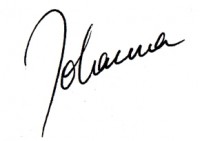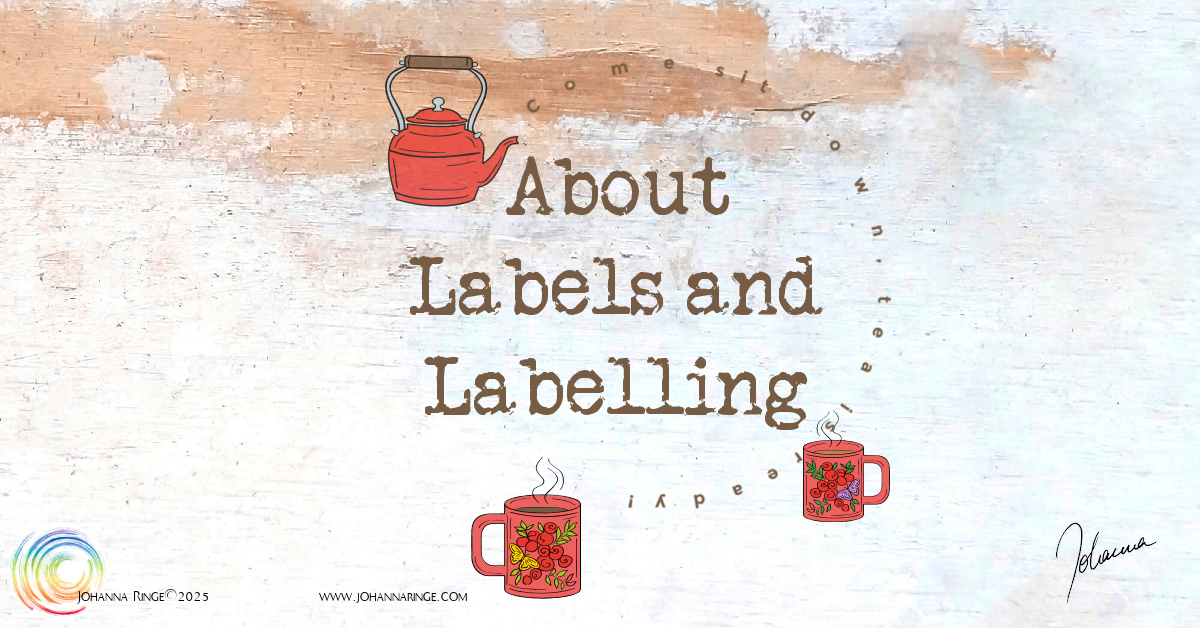I am a human being. That is the one label of which I am sure. Most of the days, anyway.
There are some other categories I fall into: daughter, mother, partner, friend, lover, neighbour, daughter in law, granddaughter, female bodied, highly sensitive, gifted, eloquent, creative… Other labels are not so easy to attach: artist, writer, blogger, student, teacher, coach, painter, knitter, driver…
- Are you a driver even when you are not driving? Just because you can drive?
- I would always say I am a knitter, even if there might be a year during which I do not knit anything. But I would never identify myself as a crocheter, even though I know how to crochet and have been seen doing it.
- Is someone a blogger for writing a Blog, or is there more to it?
- I know how to cook, I do cook quite often, but I am not a cook.
- Is he still a drummer, even if he does not play in a band, does not even have a drumkit these days?
Hm… not so easy, then, these categories, these labels.
And these were the obvious ones. What about gender? What about sexual orientation? What about nationalities? What about family groups? There are categories that can be fluid, so to say. Or rather complicated, at least.
Why are we so eager to put ourselves and others into these boxes, then?
What do they help us with? I can see how it can be important to know who in the room could drive a car or cook a meal. I can even imagine situations in which it can be particularly useful to know who has children, who knows how to cut down a tree or how to repair the lawnmower… Useful information. But nationalities? Really? Yes, I want to know which languages you speak, just in case. So, you might be fluent in French, Cantonese, or Urdu. Good to know. Oh, the envy! But I couldn’t care less about your passport.
it seems to be more about what you are able to do than what they might call you
If we crash a plane on a lonely island I for one would want to know who of us can handle a fishing rod or a knife or a medikit. Wouldn’t you? Academic titles, passports and family names will be a lot less useful then. Noone will ask about hair colour or certificates when they are hungry and tired and need shelter and food. But probably about abilities and knowledge. No one cares that you have been diagnosed with ADHD if you are great in a crisis.
Does that mean we should not talk about the labels we have been assigned? Or should we be wearing them on our lapels instead?
Neither one nor the other, methinks. Definitely not a fan of labels on lapels… But when we find ourselves in conversation with kindred spirits, we can and should speak up about our similarities, even if that means labelling ourselves. If we do not mislabel others on purpose, but instead find the right words for our own specialties and neurospicyness, labelling can be a great help in the jungle out there:
Our labels are helpful to gather our TRIBE.
These days, it really is a jungle out there. So, in order to find more of my very special tribe, I want to expand the list I started above by adding neurospicy, assumed autistic, fearless creative, avid collector and organizer of art supplies, and terribly shy singer. There may be more. Do you resonate with anything there? Well, you know how and where to find me…let’s talk about it. I`ll put the kettle on…
Heartfelt, wherever you are,



I am a human being. That is the one label of which I am sure. Most of the days, anyway.
There are some other categories I fall into: daughter, mother, partner, friend, lover, neighbour, daughter in law, granddaughter, female bodied, highly sensitive, gifted, eloquent, creative… Other labels are not so easy to attach: artist, writer, blogger, student, teacher, coach, painter, knitter, driver…
Hm… not so easy, then, these categories, these labels.
And these were the obvious ones. What about gender? What about sexual orientation? What about nationalities? What about family groups? There are categories that can be fluid, so to say. Or rather complicated, at least.
Why are we so eager to put ourselves and others into these boxes, then?
What do they help us with? I can see how it can be important to know who in the room could drive a car or cook a meal. I can even imagine situations in which it can be particularly useful to know who has children, who knows how to cut down a tree or how to repair the lawnmower… Useful information. But nationalities? Really? Yes, I want to know which languages you speak, just in case. So, you might be fluent in French, Cantonese, or Urdu. Good to know. Oh, the envy! But I couldn’t care less about your passport.
it seems to be more about what you are able to do than what they might call you
If we crash a plane on a lonely island I for one would want to know who of us can handle a fishing rod or a knife or a medikit. Wouldn’t you? Academic titles, passports and family names will be a lot less useful then. Noone will ask about hair colour or certificates when they are hungry and tired and need shelter and food. But probably about abilities and knowledge. No one cares that you have been diagnosed with ADHD if you are great in a crisis.
Does that mean we should not talk about the labels we have been assigned? Or should we be wearing them on our lapels instead?
Neither one nor the other, methinks. Definitely not a fan of labels on lapels… But when we find ourselves in conversation with kindred spirits, we can and should speak up about our similarities, even if that means labelling ourselves. If we do not mislabel others on purpose, but instead find the right words for our own specialties and neurospicyness, labelling can be a great help in the jungle out there:
Our labels are helpful to gather our TRIBE.
These days, it really is a jungle out there. So, in order to find more of my very special tribe, I want to expand the list I started above by adding neurospicy, assumed autistic, fearless creative, avid collector and organizer of art supplies, and terribly shy singer. There may be more. Do you resonate with anything there? Well, you know how and where to find me…let’s talk about it. I`ll put the kettle on…
Heartfelt, wherever you are,